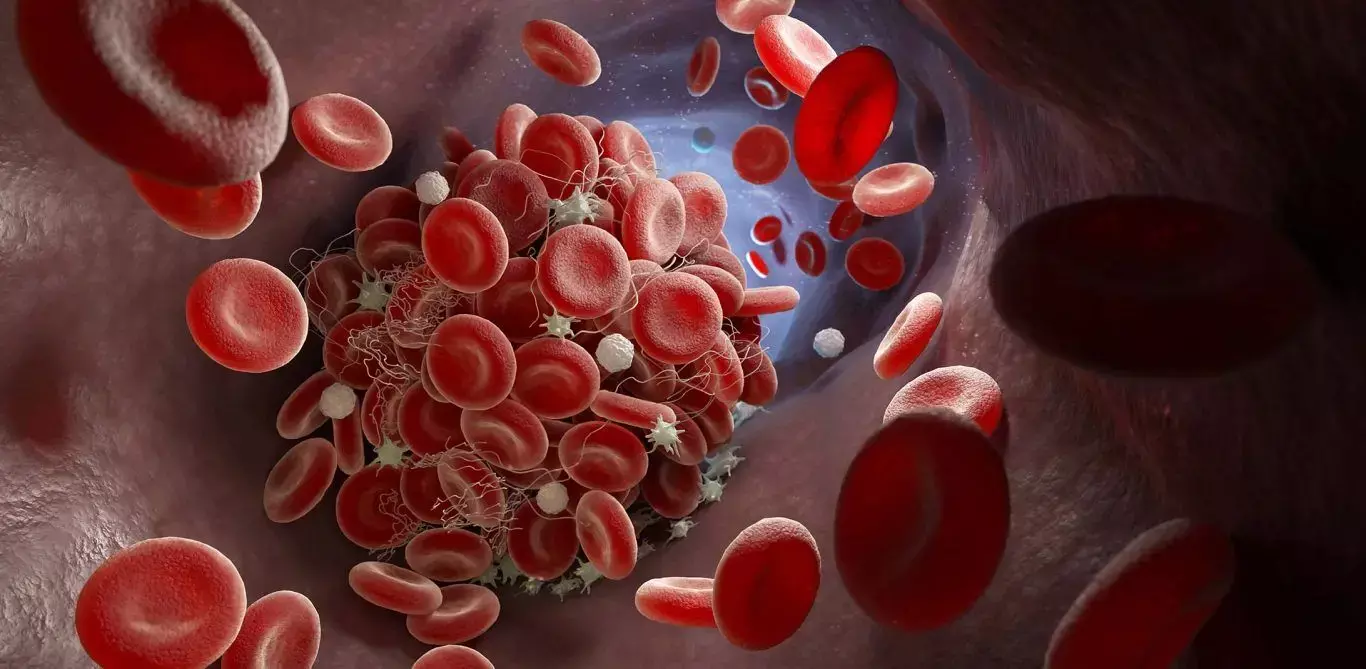- Home
- Medical news & Guidelines
- Anesthesiology
- Cardiology and CTVS
- Critical Care
- Dentistry
- Dermatology
- Diabetes and Endocrinology
- ENT
- Gastroenterology
- Medicine
- Nephrology
- Neurology
- Obstretics-Gynaecology
- Oncology
- Ophthalmology
- Orthopaedics
- Pediatrics-Neonatology
- Psychiatry
- Pulmonology
- Radiology
- Surgery
- Urology
- Laboratory Medicine
- Diet
- Nursing
- Paramedical
- Physiotherapy
- Health news
- Fact Check
- Bone Health Fact Check
- Brain Health Fact Check
- Cancer Related Fact Check
- Child Care Fact Check
- Dental and oral health fact check
- Diabetes and metabolic health fact check
- Diet and Nutrition Fact Check
- Eye and ENT Care Fact Check
- Fitness fact check
- Gut health fact check
- Heart health fact check
- Kidney health fact check
- Medical education fact check
- Men's health fact check
- Respiratory fact check
- Skin and hair care fact check
- Vaccine and Immunization fact check
- Women's health fact check
- AYUSH
- State News
- Andaman and Nicobar Islands
- Andhra Pradesh
- Arunachal Pradesh
- Assam
- Bihar
- Chandigarh
- Chattisgarh
- Dadra and Nagar Haveli
- Daman and Diu
- Delhi
- Goa
- Gujarat
- Haryana
- Himachal Pradesh
- Jammu & Kashmir
- Jharkhand
- Karnataka
- Kerala
- Ladakh
- Lakshadweep
- Madhya Pradesh
- Maharashtra
- Manipur
- Meghalaya
- Mizoram
- Nagaland
- Odisha
- Puducherry
- Punjab
- Rajasthan
- Sikkim
- Tamil Nadu
- Telangana
- Tripura
- Uttar Pradesh
- Uttrakhand
- West Bengal
- Medical Education
- Industry
Postoperative chemoprophylaxis in elective abdominal surgery may minimize bleeding risk without compromising VTE protection

A recent study published in the Annals of Surgery recommends initiating chemoprophylaxis postoperatively in elective abdominal surgery cases to reduce bleeding risk while maintaining venous thromboembolisms (VTE) protection.
Venous thromboembolism is a frequent complication in surgical patients. The most prevalent cause of avoidable mortality in individuals hospitalized for surgical operations is pulmonary embolism (PE). The risk of VTE in surgical patients is dictated by a combination of individual predisposing factors and surgical aspects.
Morbidity, mortality, and healthcare expenses are associated with postoperative bleeding and venous thromboembolisms. Chemoprophylaxis is commonly used to prevent VTEs, however it raises the risk of bleeding. The time of chemoprophylaxis initiation during surgery may impact both VTE and hemorrhage risks. The best time to start chemoprophylaxis in the perioperative phase is unknown. As a result, Christopher Klonis and colleagues undertook this study to look at the influence of chemoprophylaxis timing on VTE and bleeding rates in patients awaiting major abdominal surgery.
PRISMA principles were used to search the databases EMBASE, MEDLINE, Cochrane Library, and Web of Science. Meta-analysis was performed on randomized trials and cohort studies published between 01 January 2000 and 10 May 2022 that reported on chemoprophylaxis timing as well as the incidence of VTE and hemorrhage following elective abdominal surgery.
The key findings of this study were:
1. 14 studies (24,922 patients) were chosen from 6,175 total. The studies comprised bariatric (4 studies), colorectal (1 study), anti-reflux (1 study), ventral hernia (1 study), hepato-pancreatic-biliary (5 studies), and major intra-abdominal procedures (2 studies).
2. Chemoprophylaxis was started before skin closure in 10,403 patients and afterward in 14,519.
3. The incidence of symptomatic and total VTE were equal among study groups.
4. Early use increased the incidence of all hemorrhage, severe bleeding, blood transfusion, and reintervention as compared to postoperative chemoprophylaxis.
Reference:
Klonis, C., Ashraf, H., Cabalag, C. S., Wong, D. J., Stevens, S. G., & Liu, D. S. (2022). Optimal Timing of Perioperative Chemical Thromboprophylaxis in Elective Major Abdominal Surgery: A Systematic Review and Meta-analysis. In Annals of Surgery: Vol. Publish Ahead of Print. Ovid Technologies (Wolters Kluwer Health). https://doi.org/10.1097/sla.0000000000005764
Neuroscience Masters graduate
Jacinthlyn Sylvia, a Neuroscience Master's graduate from Chennai has worked extensively in deciphering the neurobiology of cognition and motor control in aging. She also has spread-out exposure to Neurosurgery from her Bachelor’s. She is currently involved in active Neuro-Oncology research. She is an upcoming neuroscientist with a fiery passion for writing. Her news cover at Medical Dialogues feature recent discoveries and updates from the healthcare and biomedical research fields. She can be reached at editorial@medicaldialogues.in
Dr Kamal Kant Kohli-MBBS, DTCD- a chest specialist with more than 30 years of practice and a flair for writing clinical articles, Dr Kamal Kant Kohli joined Medical Dialogues as a Chief Editor of Medical News. Besides writing articles, as an editor, he proofreads and verifies all the medical content published on Medical Dialogues including those coming from journals, studies,medical conferences,guidelines etc. Email: drkohli@medicaldialogues.in. Contact no. 011-43720751


